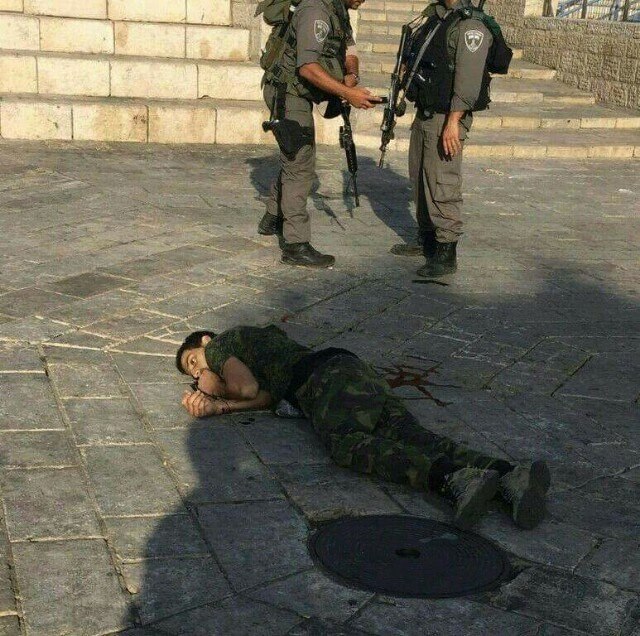Tag: Settlers
-
Israeli forces encroaching on every-day live in occupied Jerusalem
16th October 2015 | International Solidarity Movement, al-Khalil team | al-Quds (Jerusalem), occupied Palestine The Old City of al-Quds (Jerusalem) in the last few weeks has witnessed an explosion of Israeli forces’ presence, supposedly for ‘security reasons’. But having a closer look at – or just opening your eyes for – the multitude of restrictions,…
-
Settlers terrorize Palestinian farmers in Burin: burn trees and disrupt olive harvest
14th October 2015 | International Solidarity Movement, Nablus team | Burin, occupied Palestine A Palestinian farmer and English human rights defender have been hospitalized and at least 40 olive trees burnt following an attack by illegal Israeli settlers in the northern West Bank town of Burin today. At 10am this morning, as ISM and other…
-
31 martyrs in 14 days: 20 year old murdered today in Jerusalem
14th October 2015 | International Solidarity Movement, al-Khalil team | Hebron, occupied Palestine The oldest was 30, the youngest just 2 years old. 31 Palestinians have been murdered by Israeli forces since an escalation in violence, triggered by restrictions on al Aqsa Mosque, spread like wild fire across the occupied Palestinian territories and the besieged…



